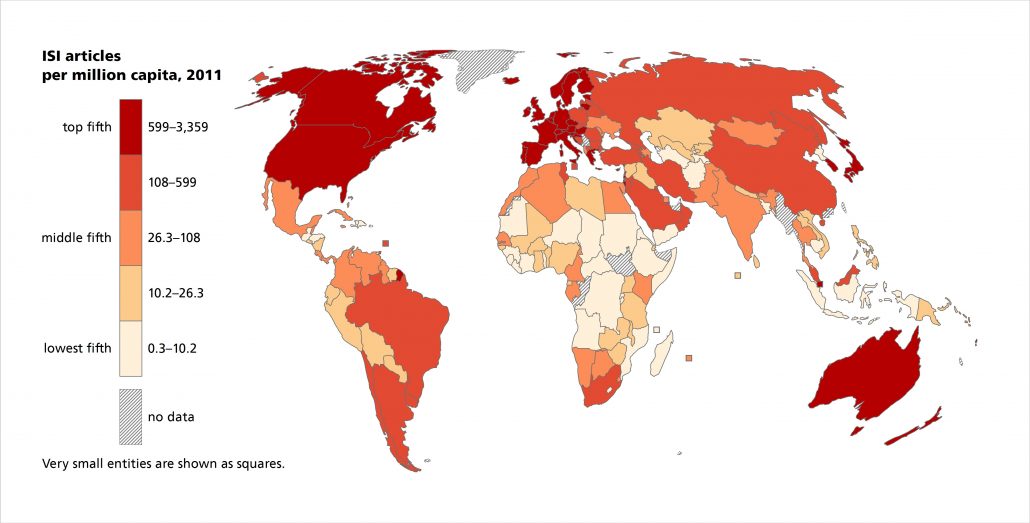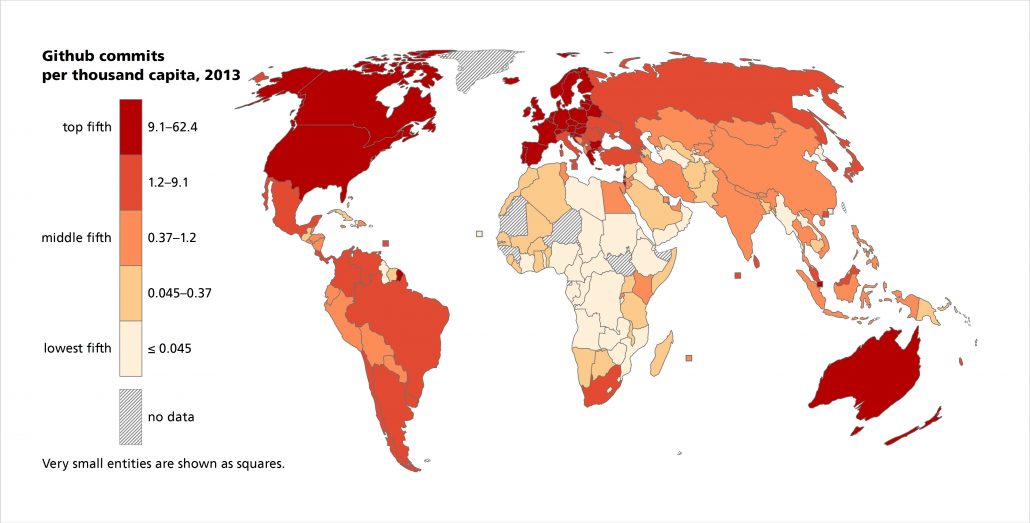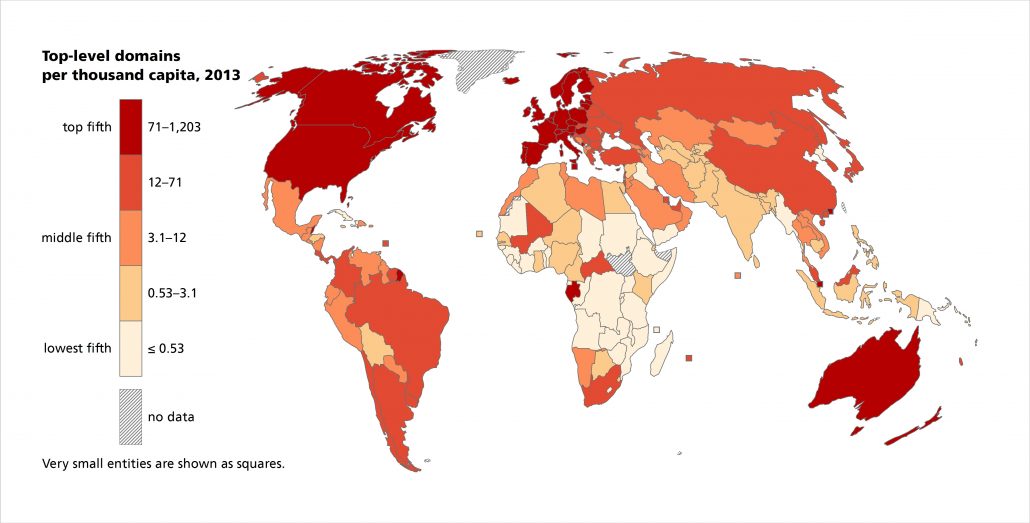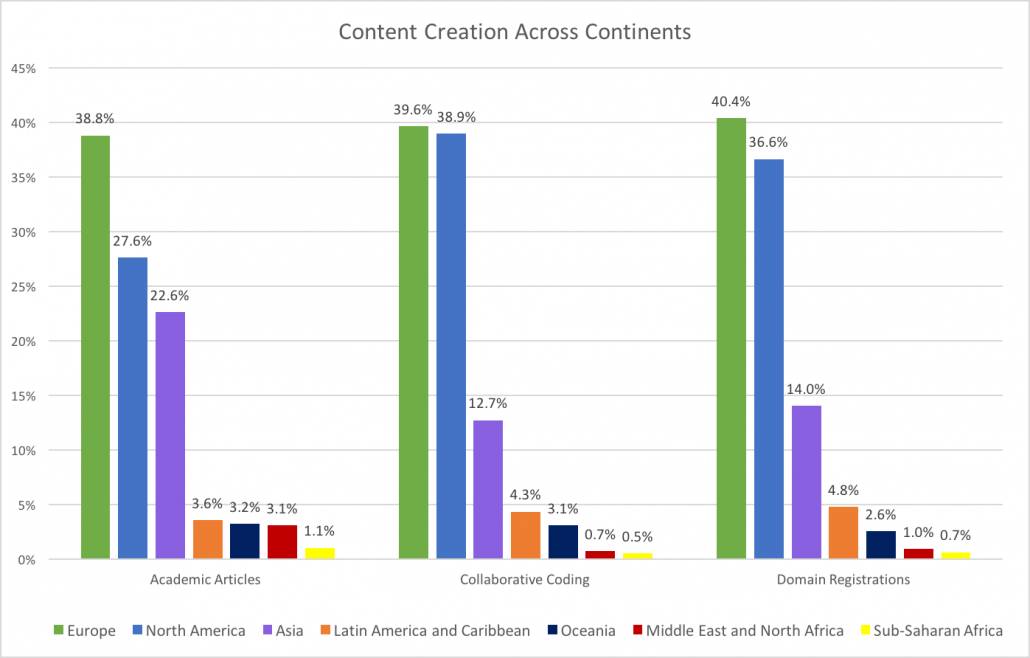The geography of published and codified knowledge has always had stark core-periphery patterns. Just look at the below map of where academic articles are published from.
However, increasing digital connectivity has sparked many hopes for the democratization of information and knowledge production in economically peripheral parts of the world. If you can access the sum of the world’s knowledge at the tip of your fingertips, are there any reasons for these sorts of patterns to persist?
Sadly, we find that there are. We examined the geography of coding (through Github) and the geography of Internet domain registrations, and find that contrary to the expectation that digital content is more evenly geographically distributed than academic articles, the global and regional patterns of collaborative coding and domain registrations are more uneven than those of academic articles. While connectivity is an important enabler of digital content creation, it seems to be only a necessary, not a sufficient, condition; wealth, innovation capacity, and public spending on education are also important factors.
You can access a full discussion of our results in the article below:
Ojanperä, S., Graham, M., Straumann, R. K., De Sabbata, S., & Zook, M. (2017). Engagement in the knowledge economy: Regional patterns of content creation with a focus on sub-Saharan Africa. Information Technologies & International Development, 13, 33–51.



